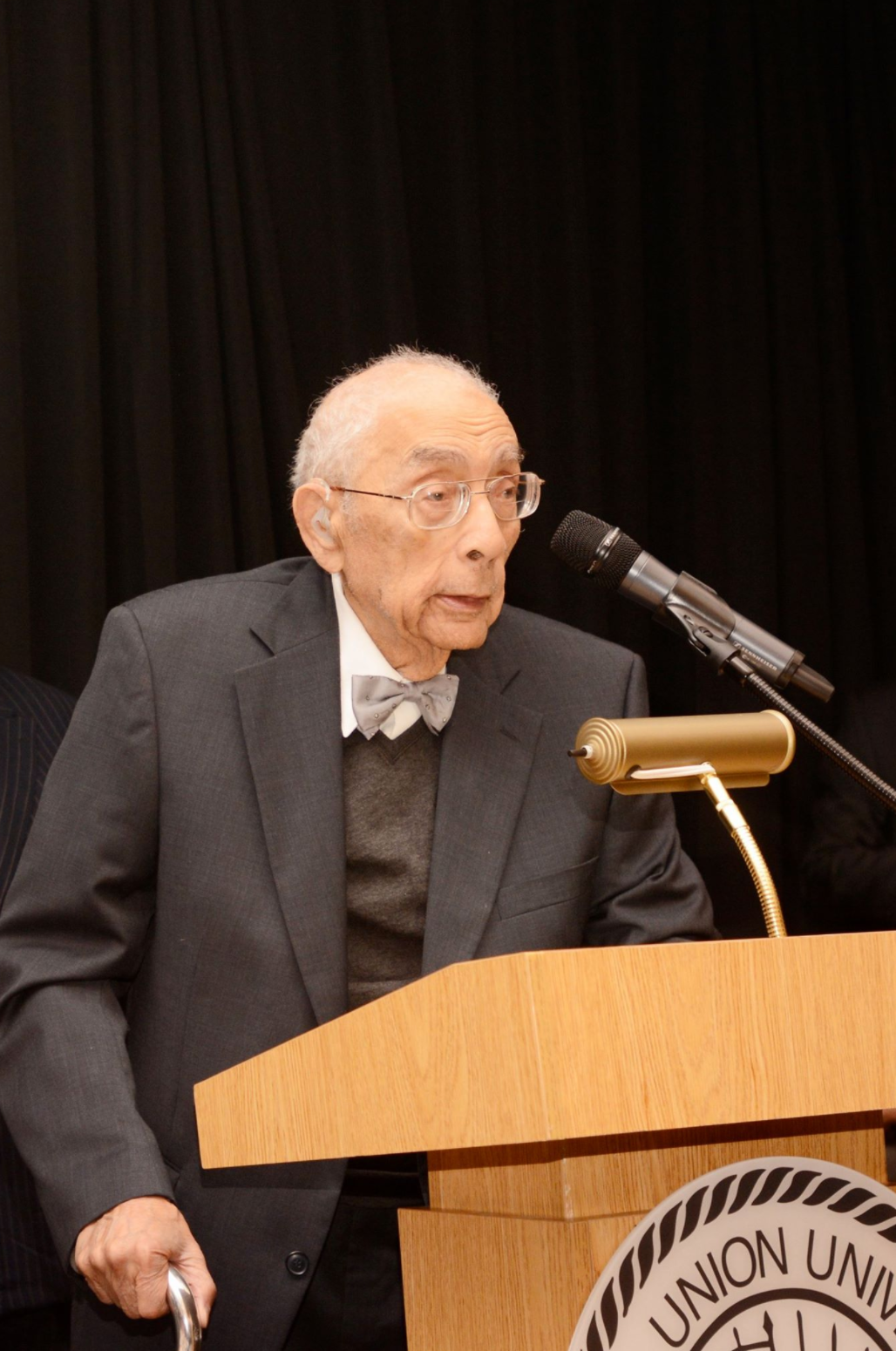
A longtime reporter and pioneer of the civil rights movement, Simeon Booker, passed away on Sunday leaving a legacy of great work behind him.
He was 99 years old.
When the world saw the haunting images of a disfigured Emmett Till in Jet Magazine, Simeon Booker was the reporter who wrote the story that galvanized the civil rights movement. Booker was in Chicago when Till went missing. He went the home of Till’s mother, Mamie Till-Mobley and was with her at Till’s funeral. Booker described the funeral in Jet, “Her face wet with tears, she leaned over the body, just removed from a rubber bag in a Chicago funeral home, and cried out, ‘Darling, you have not died in vain. Your life has been sacrificed for something.’”
Booker was born in Baltimore in 1918. He attended the HBCU Virginia Union University and was a Nieman Foundation fellowship for journalism at Harvard University. He began his career at the Baltimore Afro-American newspaper before becoming the first Black full-time reporter at the Washington Post.
Booker called his time at the Post as a ‘social experiment.’ “It was all new to them, having a Black guy in the newsroom. It was recommended to me that I only use the bathroom on the fourth floor — editorial — so I did. I could eat in the cafeteria, and I was thankful for that. But I was always alone.”
After two years at the Post, he joined the Johnson Publishing company. Booker remained at JPC at until his retirement around his 90th birthday. During his time at Johnson Publishing Company, Simeon Booker covered the Montgomery bus boycott and the march from Selma to Montgomery, AL.
Booker also covered 10 presidential administrations and the Vietnam War.
Throughout his career, Booker wrote several books, including Black Man’s America, Susie King Taylor: Civil War Nurse and Shocking the Conscience. Of his work, Booker said, “I wanted to fight segregation on the front lines. I wanted to dedicate my writing skills to the cause. Segregation was beating down my people. I volunteered for every assignment and suggested more. I stayed on the road, covering civil rights day and night. The names, the places and the events became history.”
He leaves to mourn his wife of 44 years Carol McCabe, three children and many grandchildren.





